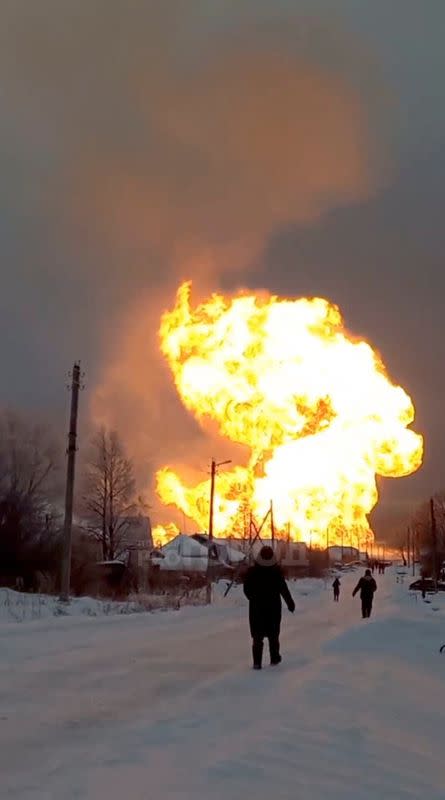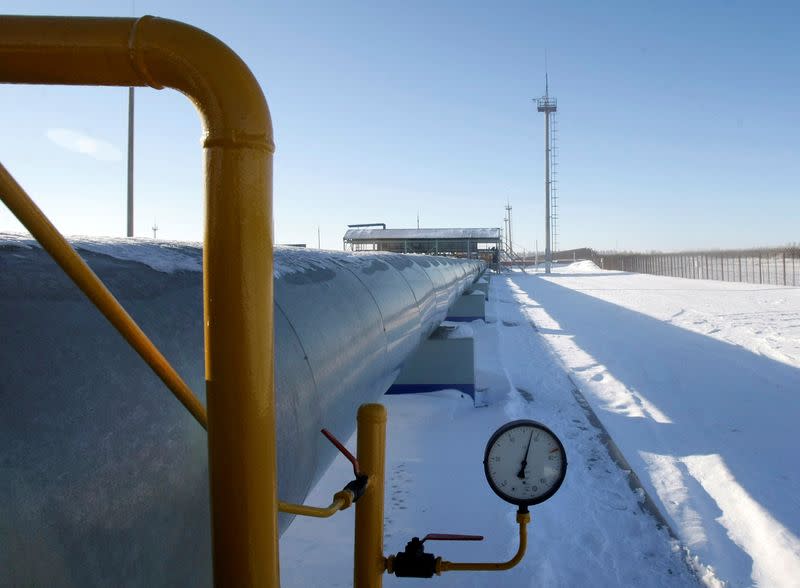Gazprom: gas supplied in full, bypassing damaged Russian export pipeline
By Vladimir Soldatkin and Oksana Kobzeva
MOSCOW (Reuters) - A local unit of the Russian energy giant Gazprom said on Tuesday that gas was being supplied to customers in full via parallel pipelines following a fatal explosion in a section of the Urengoi-Pomary-Uzhhorod pipeline.
The blast, near Kalinino, around 150 km (90 miles) west of the Volga city of Kazan in central Russia, killed three people and threatened to disrupt some of the limited volume of Russian gas that is still reaching Europe despite the economic fallout from Russia's military campaign in Ukraine.
"The damaged section of the gas pipeline was promptly localised. Gas is being transported to consumers in full through parallel gas pipelines," Gazprom Transgaz Nizhny Novgorod said in a statement.
The flow of gas through the "Urengoy-Tsentr-2" section of the Urengoi-Pomary-Uzhhorod pipeline, which takes gas from Russia's Arctic to central Europe via Ukraine, was halted as of 1:50 p.m. (1050 GMT), local officials said on the Telegram messaging app. A gas flare at the mouth of the pipe was extinguished soon after.
Oleg Nikolayev, governor of the Chuvashia region, told state television that three workers who had been servicing the pipeline had been killed, while another, a driver, was suffering shock.
Nikolayev said authorities were trying to work out when gas supplies through that section might resume.
The pipeline, built in the 1980s, enters Ukraine via the Sudzha metering point, currently the main route for Russian gas to reach Europe.
Europe's gas prices have surged this year since Russia cut exports through its main Baltic pipeline into Germany, leaving only pipelines through Ukraine to pump Russian gas to European consumers.
Gazprom had said earlier on Tuesday it expected to pump 43 million cubic metres of gas to Europe via Ukraine through Sudzha in the next 24 hours, a volume in line with recent days.
Forward prices on the Dutch TTF trading hub rose after news of the blast, but fell back following the statement on supplies continuing.
The benchmark TTF front-month contract was steady at 107.00 euros per megawatt hour at 1515 GMT.
(Reporting by Vladimir Soldatkin and Oksana Kobzeva; Editing by Kevin Liffey, Andrew Osborn and Barbara Lewis)

 Yahoo News
Yahoo News 

